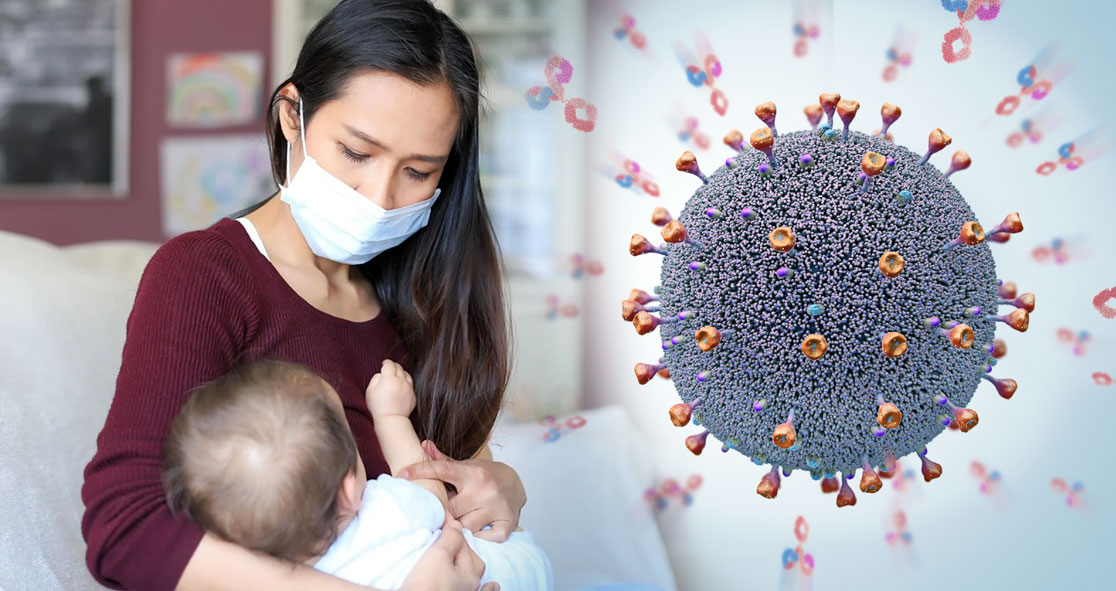A new study from the researchers of the University of Florida has found that the breast milk of lactating mothers who received COVID-19 vaccines contains a significant amount of antibodies, which may help protect nursing infants from the disease, according to Science Daily.
Senior author of the study Prof. Joseph Larkin III said, “Our findings show that vaccination results in a significant increase in antibodies against SARS-CoV-2, the virus that causes COVID-19, in breast milk, suggesting that vaccinated mothers can pass on this immunity to their babies, something we are working to confirm in our ongoing research.”
Babies have underdeveloped immune systems, which makes it hard for them to fight infections on their own. Also, they are too young to respond adequately to certain vaccines, said co-author Dr. Josef Neu.
“During this vulnerable period, breast milk allows nursing mothers to provide infants with ‘passive immunity,’” Dr. Neu explained. “Think of breast milk as a toolbox full of all the different tools that help prepare the infant for life.”
“Vaccination adds another tool to the toolbox, one that has the potential to be especially good at preventing COVID-19 illness,” he added. “The results of our study strongly suggest that vaccines can help protect both mom and baby, another compelling reason for pregnant or lactating women to get vaccinated.”
The researchers recruited 21 lactating health workers who had never contracted COVID-19, collecting their breast milk and blood samples before vaccination, after the first dose, and after the second dose. The study was conducted from December 2020 to March 2021, when both Pfizer and Moderna vaccines became available to health workers.
Lauren Stafford, a doctoral student in Prof. Larkin’s lab, said, “We saw a robust antibody response in blood and breast milk after the second dose — about a hundred-fold increase compared with levels before vaccination.”
Dr. Vivian Valcarce said, “These levels are also higher than those observed after natural infection with the virus. Vaccinating mothers to protect babies is nothing new.”
“Typically, expectant mothers are vaccinated against whooping cough and flu because these can be serious illnesses for infants,” she added. “Babies can also catch COVID-19, so routine vaccination of mothers against the virus could be something we see in the future.”
Prof. Larkin said, “We would like to know if infants who consume breast milk containing these antibodies develop their own protection against COVID-19. In addition, we would also like to know more about the antibodies themselves, such as how long they are present in breast milk and how effective they are at neutralizing the virus.”
Dr. Neu said his lab is also interested in exploring the potential therapeutic uses of breast milk produced by vaccinated mothers, according to Science Daily.
“We are also excited to see many other simultaneous studies conducted around the world that also show antibodies in the breast milk of vaccinated mothers,” Dr. Neu said. “That means our study validates a growing body of evidence.”
Stafford said, “There is still so much we are learning about breast milk and all its benefits, and that’s what makes this research so fascinating — not just for us scientists but for non-scientists, too.” The article was published in Science Daily.























